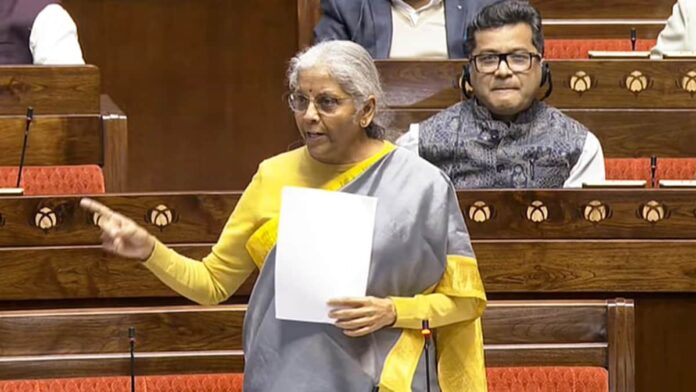Finance Minister Nirmala Sitharaman on Thursday tabled the Income Tax Bill 2025 in the Lok Sabha, a crispier version of the six-decades-old current principal law, with “substantial changes” aimed at simplifying the provisions. The draft law will be referred to a select committee, whose composition the speaker will decide. The panel would review the Bill and submit its report to Parliament by the first day of the next session, the minister said.
ALSO READRules on construction & service contracts now part of main I-T law
Earlier, some of the Opposition parties had objected to the introduction of the Bill.
Tax experts commended the language of the Bill that is “easier to understand” and re-grouping of some of the sections for easy reference. However, there no change has been proposed in tax rates or key tax provisions like residency rules, capital gains taxation, general anti-avoidance rules, transfer pricing, TDS/TCS rates etc.
“…substantial changes have been made, the number of words have come down by half. It’s in plane simple English,” said the FM.
Pertinently, the proposed law, which will be effective once passed by Parliament, from April 1, 2026, seeks to replaces the term “previous year” as mentioned in the extant law with “tax year” that is aligned with the financial year (April-March). The concept of assessment year has been done away with.
Further, all sections related to tax deducted at source (TDS) have been combined under a single clause, and retained a Charter that seeks to buttress taxpayers’ rights.
The Bill was announced in the ministers’ speech outlining Budget FY26 on February 1 and was approved by the Union Cabinet on February 7.
According to FAQs issued by the Central Board of Direct Taxes on Thursday, there are “no changes” related to rates in the new Bill. Since there have been regular amendments to the I-T Act, 1961 including amendments proposed in Finance Bill, 2025, the Act stands updated from policy perspective, the CBDT added. “Therefore, while no major policy related changes have been made in the Bill, the above aspects have led to proposed ‘material’ changes in the existing law,” said the CBDT.
In the new Bill, redundant provisions of the existing Act have been removed; sub-sections and clauses have been used, instead of relying on provisos and explanations for exceptions and carve-outs;
» Read More


